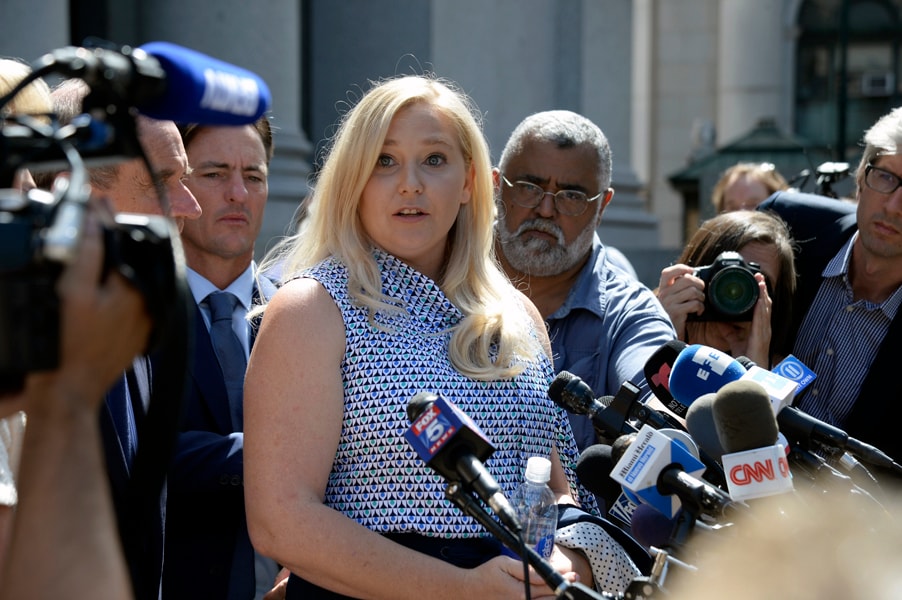
Prince Andrew's uncertain legal fate casts shadow on Britain's royals
On Tuesday, lawyers for the queen's second son, Prince Andrew, asked a federal judge to throw out a lawsuit by Virginia Roberts Giuffre, in which she says that Andrew, a friend of late financier and convicted sex offender Jeffrey Epstein, raped her when she was 17
 Virginia Roberts Giuffre speaks to reporters in New York on Aug. 27, 2019. If a judge allows her case to go forward, Prince Andrew could face damaging testimony from her about his alleged abuse. (Jefferson Siegel/The New York Times)
Virginia Roberts Giuffre speaks to reporters in New York on Aug. 27, 2019. If a judge allows her case to go forward, Prince Andrew could face damaging testimony from her about his alleged abuse. (Jefferson Siegel/The New York Times)
LONDON — Queen Elizabeth II will mark 70 years on the throne in February, a milestone unmatched by any British sovereign and a chance to turn the page on three years of ceaseless turmoil in the royal family. But a sexual abuse lawsuit unfolding in a New York courtroom could yet spoil her celebration.
On Tuesday, lawyers for the queen’s second son, Prince Andrew, asked a federal judge to throw out a lawsuit by Virginia Roberts Giuffre, in which she says that Andrew, a friend of late financier and convicted sex offender Jeffrey Epstein, raped her when she was 17.
It was the latest in a skein of legal maneuvers by the prince’s lawyers to defuse Giuffre’s case. While the judge, Lewis A. Kaplan, did not immediately rule on the motion, leaving Andrew’s legal fate unsettled for now, the hearing dramatized the shadow that the 61-year-old prince still casts over his family.
If the judge allows the case to go forward, Andrew could face damaging testimony from Giuffre about his alleged abuse of her at Epstein’s residences in New York and in the Caribbean. That would plunge the House of Windsor back into scandal at the very moment it hopes to use the Platinum Jubilee to remind Britons of the queen’s extraordinary longevity and largely blemish-free record of service.
The 70-minute hearing gave a glimpse into the kinds of issues that could spill out in a prolonged trial. At one point, Andrew’s lead lawyer, Andrew B. Brettler, argued that Giuffre had not been specific in her allegations against him. Kaplan replied that she said she had been subjected to “involuntary sexual intercourse” and asked what was not clear about that.
©2019 New York Times News Service







